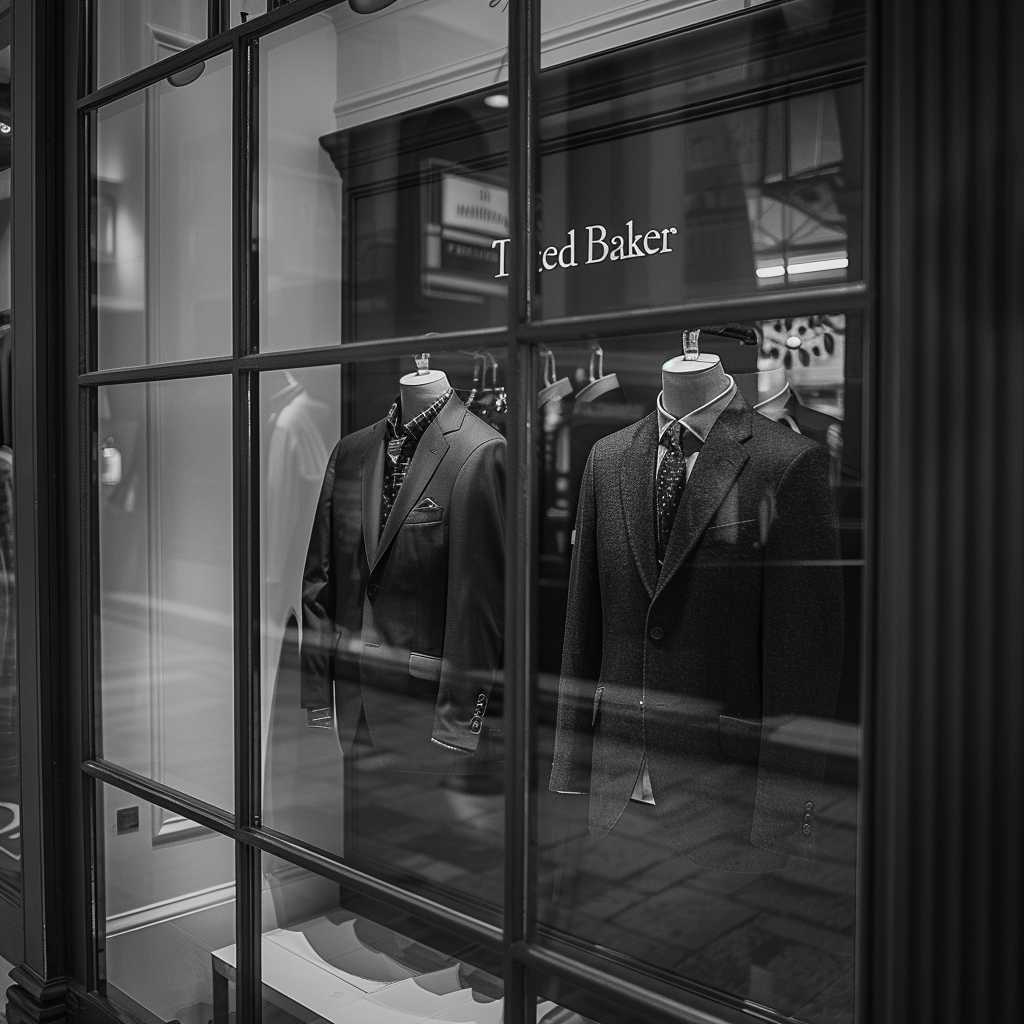The Rise of Ted Baker: A Story of Fashion, Entrepreneurship, and Brand Identity
Ted Baker, the quintessential British brand known for its quirky yet commercial fashion apparel, sophisticated and fun, has carved out a significant niche in the global fashion industry. The brand started in Glasgow in 1988 as a shirt specialist, and over the years, it expanded into a wide range of clothing and accessories for both men and women. This article traces the brand’s history, explores its unique marketing strategies, discusses its pivotal expansion, and addresses the challenges it has faced.
From Glasgow to Global: The Founding of Ted Baker
Ray Kelvin started Ted Baker as a shirt specialist in Glasgow in 1988. Steered by his unique vision and approach to business, Kelvin rolled out a brand with personality—a trait that would become a hallmark of Ted Baker throughout its evolution. Distinguished by high quality fabrics, distinctive pattern designs, and meticulous attention to detail, Ted Baker shirts quickly gained popularity.
Brand Identity and Unique Marketing Approach
Ted Baker has always positioned itself as a brand with a twist. Early on, it embraced a no advertising policy, preferring to rely on word-of-mouth and quirky twists on traditional marketing strategies. Instead of mainstream ads, Ted Baker would create memorable physical experiences or giveaways—such as laundry services or “shoppable” windows—prompting customers to engage with the brand in playful, unconventional ways.
The company’s “Tedquarters” frequently became the epicenter for memorable events and creative stunts that generated organic buzz. This consistent but alternative Ted-quality allowed for steady growth whilst maintaining an aura of exclusiveness.
A Legacy of Quality and Attention to Detail
Known for a meticulous approach to tailoring and manufacturing, the brand has remained steadfast in its commitment to quality clothing. Ted Baker has frequently been characterized by a use of fine fabrics, an eye for detail that underpins every stitch, and tiny surprise features that delight consumers.
Global Expansion and Digital Evangelizing
Throughout the late 1990s and into the 2000s, Ted Baker expanded not only across the UK but also internationally. NYC welcomed the first US store in 1998, signifying massive potential for global recognition. Asia and the Middle East followed in embracing the distinct Ted spirit which adeptly combined British chic with universal appeal.
Online markets have since bolstered their global footprint. Its strategy has heavily leaned towards digital outreach through its website and engaging social media channels which synergizes with its physical stores aiming for an omni-channel presence.
Controversies and Challenges
No journey comes without bumps, and such has been the case for Ted Baker. The brand felt significant tremors in December 2018 when allegations surfaced against founder Ray Kelvin related to inappropriate behavior toward staff members. Subsequent investigations led to his resignation.
Aside from management issues, the retail sector challenges including fast fashion’s pressure on pricing, consumer shifts towards online shopping, and sustainability concerns warrant adaptive strategies from seasoned players like Ted Baker.
Recent Developments and Looking Forward
In recent years, Ted Baker has taken steps toward sustainable production and connected more emphatically with contemporary concerns like environmental impact. Like many other retailers facing economic headwinds shaped by COVID-19 pandemic repercussions coupled with uncertain retail markets, the future will command astute leadership coupled with innovative practices.
As part of this forward-looking approach, the company launched ‘Ted’s Bazaar’, a limited edition collection aimed at supporting communities affected by COVID-19 through charity contributions linked to sales from exclusive items marketed via social media channels catering to accessory trends within fashion-literature communities.
The Future of Retail Fashion: Where Does Ted Baker Stand?
Amidst the rapidly changing landscape of retail fashion influenced by shifts toward digital consumerism post-pandemic reirement patterns appoint speculative shuffles amongst lead brands – can Ted Baker’s distinctive brand identity continue to secure its place under this transforming firmament? The commitment towards adapting while sustaining its core values indeed serves as a navigator heading into this challenging era.
